Digital Day 2019 - Do You Trust Artificial Intelligence?
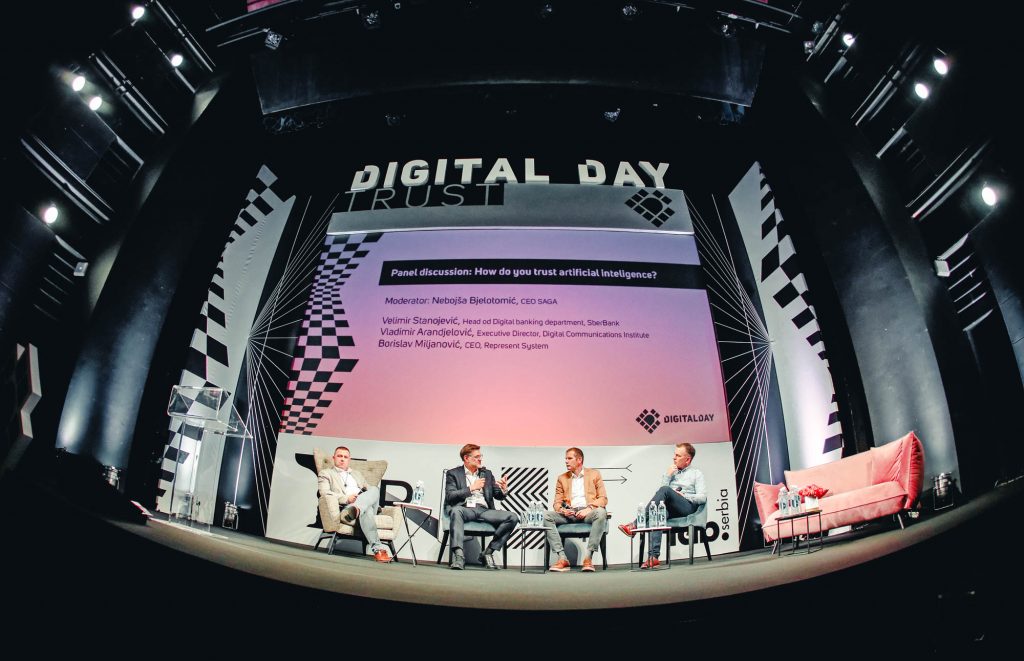
Since its foundation in 2011, Digital Day has grown in the direction of the most important digital and interactive event in the region. This unique event is educational and brings us the most relevant speakers from very mature markets who share their knowledge, experience and best practices in the digital advertising industry. For the first time, Saga took part in this event in the form of partnerships and sponsorship of the panel: “How Do You Trust AI?”, moderated by our CEO, Nebojsa Bjelotomic.
Digital Day 2019 raised the crucial question of today – Do you believe it? (How Do You Trust?)
Nebojsa went on to answer this question, and in that way opened the panel: Do we trust artificial intelligence?
Honestly, no, we don’t trust it, because we’re conditioned to be scared of it, more accurately scared that artificial intelligence will replace us. In fact, artificial intelligence is very important and can only help us. When we think of artificial intelligence, we need to touch on a couple of definitions. Everyone first thinks of the HAL 9000, T800, or some other robot from movies and series, and this is something called general artificial intelligence. We are decades away from it. What has progressed over the last couple of years is particular artificial intelligence, such as the facial recognition process. More specifically, particular artificial intelligence is when we can create process automation from a large amount of data, such as language recognition, where “machines” can talk to users and create “human-like” conversations.
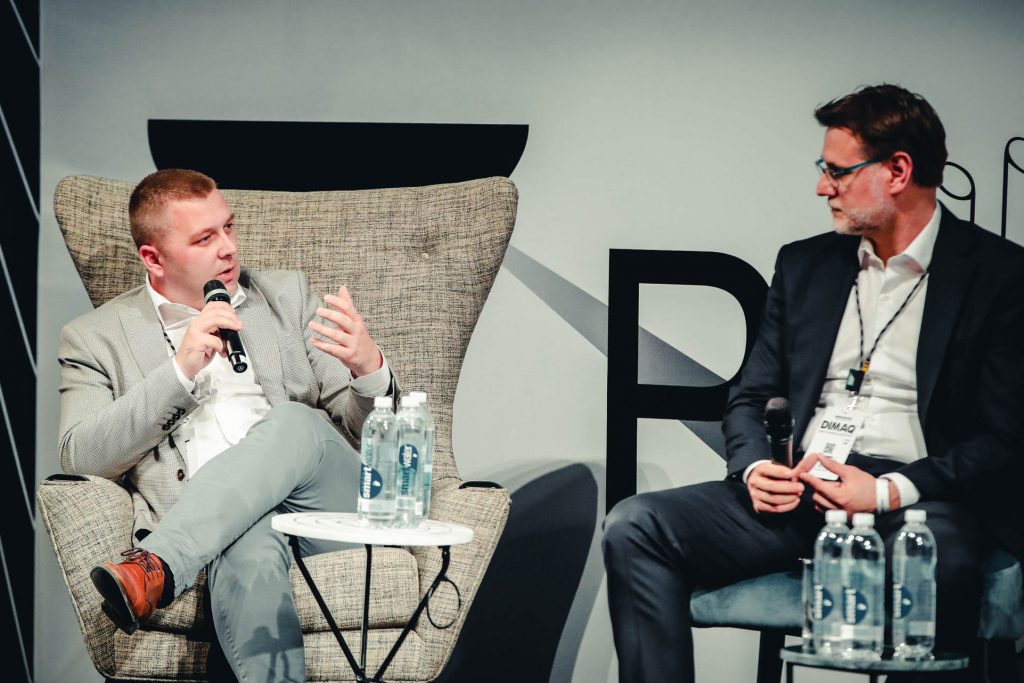
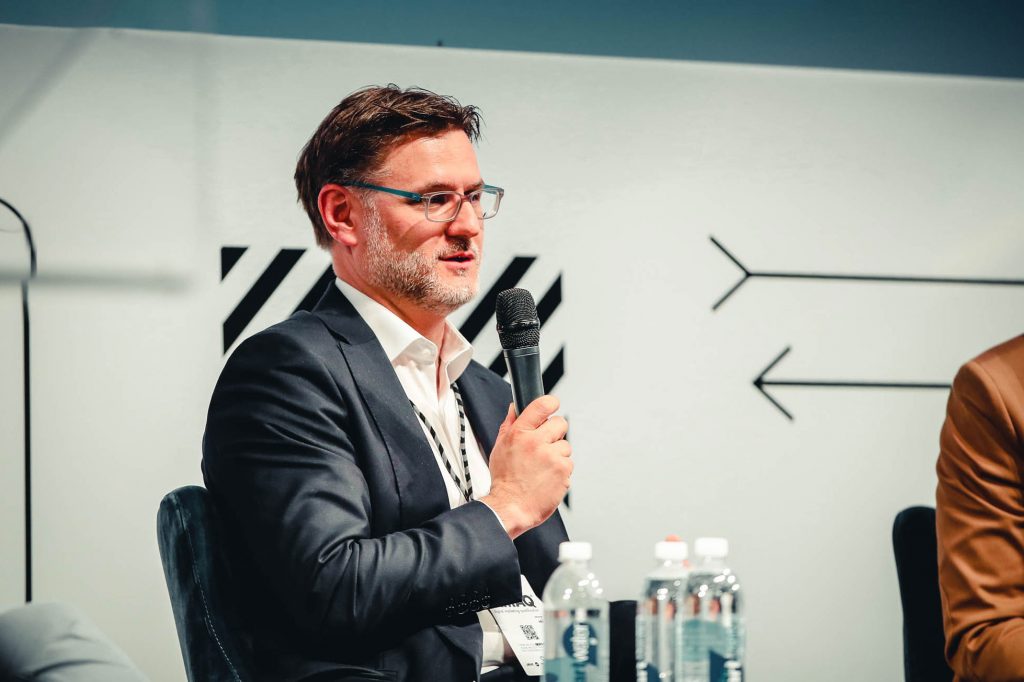
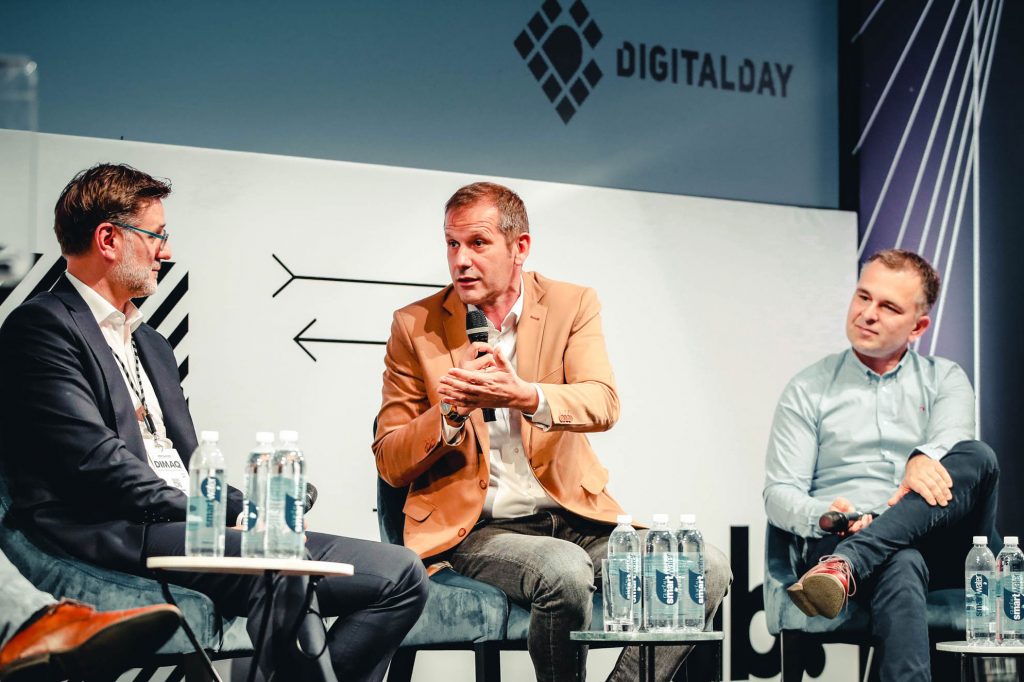
Borislav Miljanovic, Managing Director of Represent Communications Agency, spoke from the point of view of investors in an AI product – software that can automatically monitor 300 portals, various forums, media, TV channels and create reports. Borislav believes that the biggest problem in our market is tightness towards artificial intelligence, but that the market is changing in a better direction. Vladimir Arandjelovic, Executive Director of the Digital Communications Institute, talked about the application of artificial intelligence in advertising, which is increasingly present in marketing and carries much of the market. The channels we use on a daily basis, such as Facebook or Google, have long been using artificial intelligence. Customer data is collected by systems that have basically artificial intelligence, so most people are not even aware that they use systems and platforms that use this advanced technology on a daily basis. Velimir Stanojevic, Head of Digital Banking Department at Sberbank Serbia, stated that service operations at banks, such as a contact center, are the first step where artificial intelligence can help a business. The second step with banks is to find the right way for artificial intelligence to increase profits and become a new sales channel. In banking, this will happen with the opening of the API, where with the help of all data will change “risk models” and the way banks react. Banks will no longer be reactive, but with data analysis they will be able to make the right offer for the user, at the right time.
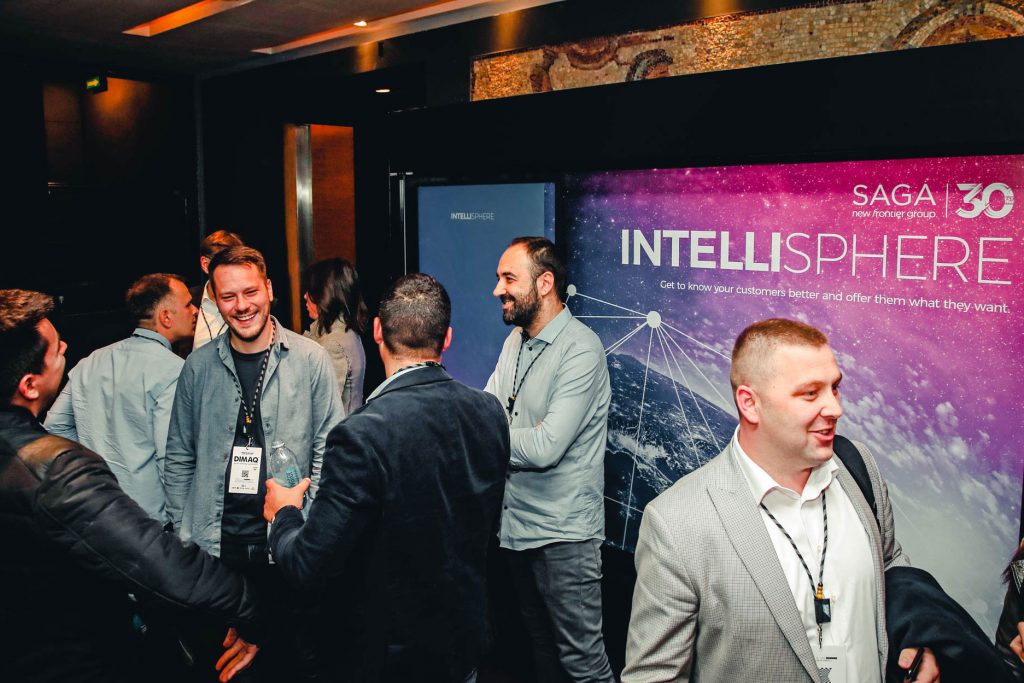

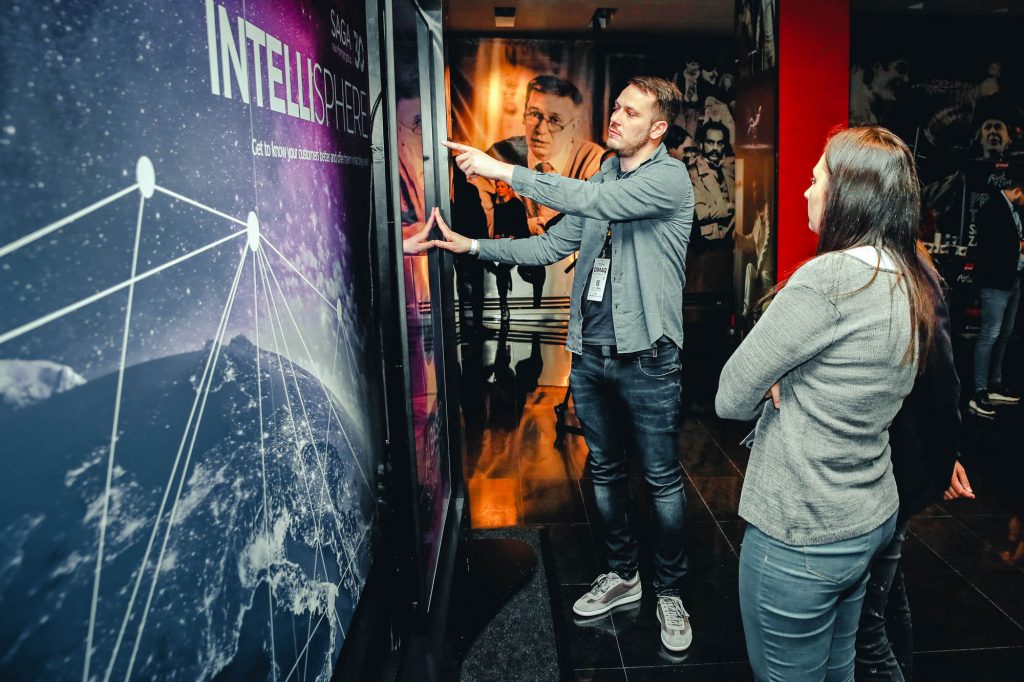
Nebojsa stated that artificial intelligence should open up new fields for us that we do not see now. The user wants to have a good price and good quality, and artificial intelligence just works both ways. The price is decreasing because fewer people are working on operations, while at the same time the reach of our solution is increasing.
Chatbots, more specifically virtual assistants, such as in our REA market, were the next topic of the panel, specifically how well the region is willing to interact with virtual assistants. The general conclusion is that the region is slowly embracing this mode of communication and that we are not too late in comparison to the rest of the world, but that we need to educate the market.
Artificial intelligence is not a hob, something that already surrounds us, and if companies venture into it, it can become a business opportunity. If companies do not recognize this, users will force them to commit to artificial intelligence.

